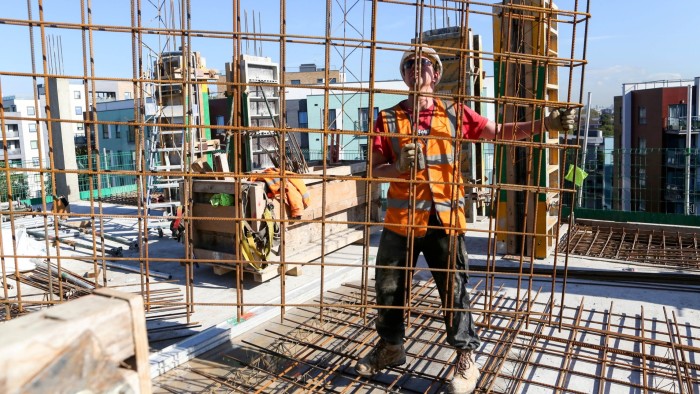Unlock the Editor’s Digest for free
Roula Khalaf, Editor of the FT, selects her favourite stories in this weekly newsletter.
UK officials are hopeful that the country’s steel industry will avoid being slapped with a 50 per cent tariff by Donald Trump when a deadline expires on Wednesday for nations to negotiate tariff deals with the US president.
London is locked in intensive talks with Washington to fully implement the “economic partnership” agreement signed by both sides on May 8. The accord offered a zero-tariff quota for UK steelmakers, but has not been agreed two months later.
A spokesperson for Prime Minister Sir Keir Starmer on Monday said the government was working to get the deal finished “as soon as possible” but was unable to say when it would be done.
However, two senior UK officials played down the risk that the current 25 per cent tariff facing UK steelmakers would be raised to 50 per cent when Wednesday’s deadline passed for other countries to conclude negotiations at the end of a 90-day pause on the “reciprocal tariff”. Trump announced the measure on April 2.
In a sign of the White House’s determination to put pressure on countries to agree deals, Trump on Monday said he would impose tariffs of 25 per cent on goods from Japan and South Korea from August 1.
Last month he announced he was doubling the global US steel tariff to 50 per cent, but exempted the UK from the increase, pending completion of negotiations.
But he also warned that “on or after” the July 9 deadline for reciprocal tariff deals he “may increase the applicable rates of duty to 50 per cent” if the UK had not complied with relevant aspects of the economic partnership deal.
Two senior officials with knowledge of discussions said they were confident the UK steel industry would avoid that worst-case scenario.
“I strongly believe we will not see the 25 per cent we currently have go up on July 9,” one said, adding that the subject had been raised directly with US officials last week in talks in Washington.
Another said the UK situation was complicated by the fact the US was negotiating with other relevant trade partners, adding that the “hard-pressed” US bureaucracy needed more time to resolve the issues.
UK trade secretary Jonathan Reynolds has disclosed that a US requirement for steel for “melted and poured” in its country of origin in order to qualify for preferential tariff treatment is the key sticking point. At present, not all UK steel qualifies.
Separately, a trade body representing steel users in the UK warned that ministers’ moves to protect the steel industry from a glut of cheap international imports risked triggering shortages and higher prices for manufacturers.
The International Steel Trade Association warned that a UK decision to impose additional tariffs on steel from countries including Vietnam, South Korea and Algeria last week would damage “ports, transporters and all that handle and use steel”.
The intervention came after Reynolds overruled the UK Trade Remedies Authority — the body that advises government on trade defence measures — to take extra steps to defend against steel dumping.
ISTA chair Julian Verden said Reynolds had “ignored” the recommendations of user groups in favour of protecting the UK’s producers, which he said had a “vested interest” in creating a monopoly to the detriment of industry and other consumers of steel.
Andrew Gardner, director of procurement at Hadley Group, one of the biggest UK users of galvanised steel in construction and manufacturing parts, said limiting imports from Vietnam and South Korea would “remove access to high-quality, lower-priced steel, potentially driving up costs and resulting in end users needing to rely on inferior quality steel”.
But UK Steel, which represents producers including Tata Steel and British Steel, rejected ISTA’s claims and said global steel prices were unsustainably low for UK producers.
The government said it was “working to protect our [steel] industry from unfair competition”.
Reynolds “concluded it was in the public interest to reject the TRA’s recommendation to ensure the effectiveness of the steel safeguard measure for domestic producers, alongside the need for security of supply”, it added.



